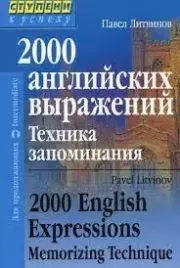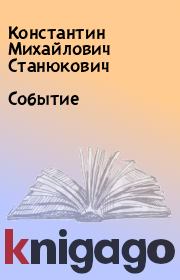Павел Петрович Литвинов - Основы английского языка. Грамматика, словарь, устойчивые выражения
 | Название: | Основы английского языка. Грамматика, словарь, устойчивые выражения |
Автор: | Павел Петрович Литвинов | |
Жанр: | Справочники | |
Изадано в серии: | неизвестно | |
Издательство: | неизвестно | |
Год издания: | 1996 | |
ISBN: | неизвестно | |
Отзывы: | Комментировать | |
Рейтинг: | ||
Поделись книгой с друзьями! Помощь сайту: донат на оплату сервера | ||
Краткое содержание книги "Основы английского языка. Грамматика, словарь, устойчивые выражения"
Вы хотите говорить на английском, как на родном языке?
Я знаю, что Вам для этого нужно! Вам нужны слова, правила их связывания в предложения и устойчивые выражения.
1. Вы не знаете английских слов.
Я знаю, как их можно очень быстро и на всю жизнь выучить, как таблицу умножения. Я отобрал минимум и разбил его на блоки, объединенные логической макроструктурой. Память запоминает все с первого раза. Мы не можем извлечь информацию из памяти потому, что нет ассоциации. Я даю Вам ассоциации. Вы будете знать слова, как таблицу-умножения. Подробности смотрите Часть I. Методика овладения словами.
Читаем онлайн "Основы английского языка. Грамматика, словарь, устойчивые выражения". Главная страница.
- 1
- 2
- 3
- . . .
- последняя (43) »
Л 64
Л 64 Литвинов П.П. Основы английского языка. Грамма
тика, словарь, устойчивые выражения. — М.: «Лист». 1998.-464 с.
ББК 81.2 Англ
Корректор
Верстка
Обложка
Смирнова Е.
Егоренков А.
Феногенов В.
ЛР № 064763 от 24 сентября 1996 г.
Подписано в печать 15Л2.98 г. Формат 84 х 108/32. Бумага типографская. Печать офсетная. Усл. печ. л. 24,36. Тираж 10 000 экз. Закаа № 3635.
Отпечатано с готового оригинал-макета в типографии ГИПП «Вятка». 610044, г. Киров, ул. Московская, 122.
ISBN 5-7871-0081-6
© ООО to be unpleasant.
тихий/низкий low [lou] If a sound is low, it is quiet or soft.
глухой deaf [def] Somebody who is deaf is unable to hear anythin or unable to hear very well.
приятный pleasant [pleznt] A pleasant sound or music is enjoyab and attractive.
пезкий sharp [ʃɑ:p] A sharp sound is very short and sudden and quite loud.
приглушенный muffled ['mʌfld].
еле слышный hurdly audible ['hædɪɪ 'ɔ:dəbɪ].
Hoc
"
вонючий stinking ['stɪŋkɪŋ] You use “stinking' to describe an extremely unpleasant smell or situation.
неприятно пахнущий smelly ['smelɪ] Something that is smelly has an unpleasant smell.
ароматный aromatic [ærɔ'mætɪk] A plant or food that is aromatic has a strong pleasant smell.
душистый fragrant ['freigrənt] Something that isfragranthes a sweet, pleasant smell.
специфический specific [spɪ'sɪfɪk] Something that is specific to a particular thing is connected with that thing only (including smells).
без запаха odourless ['oudəlɪs] An odourless substance has no smell.
• ВРЕМЯ
Основные признаки
долгий long [ɪɔŋ] You use “long' to say that a great amount of time passes while something is happening or is in existence.
краткий brief [bri:f] Something that is brief lasts for only a short time.
короткий short [ʃɔ:t ] If something lasts for a short time, it does not last very long.
меДДенный slow [slou] Something or somebody that is slow move, do something or happen without very much speed.
ыстрый fast [fɑ:st] If something or somebody is fast, they move, do something, or happen with great speed.
острый swift [swift] A swift event or process happens very quickly ^Ремительный rapid ['ræpɪd] Something that is rapid happens very fast or moves with great speed.
СтРый quick [kwɪk] Somebody or something that is quick move Or do things with great speed.
ранний early ['ə:lɪ] If somebody arrives early, he arrives before^ time that was arranged.
поздний late [left] If you arrive late, you arrive after the time th- was arranged. You use “late” to describe things that happ^ after the normal time.
маленький little [lɪtl] A little child is very young.
молодой young [jʌŋ] A young person, animal or plant has not livec for very long and is not yet mature.
взрослый adult ['ædʌlt] An adult person or animal is fully developed and mature.
старый old [ould] Somebody who is old has lived for many yean and is no longer young.
пожилой aged ['eɪʤɪd] Aged means very old.
новый new [nju:) Something that is new has been recently made or created, or is in the process of being made.
Стадии
древний ancient ['eɪnʃənt] You use “ancient” to describe things that belong to the distant past or that are very old.
прошлый past [past] Past things are things that happened or existed before the present time.
настоящий present [preznt] You use “present” to describe people and things that exist now, rather than those that existed in the past or those that may exist in the future.
будущий future ['fju:ʧə] Future things will happen or exist after the present time.
современный contemporary [kən'tempərən] Contemporary peopk or things are alive or happening in the past, at the same time as something else you are talking about.
современный modern ['mɔdən] Modem means relating to the presenɪ time.
новейший up-to-date ('ʌptə'deɪt] ɪf something is up-to-date, it is the newest thing of its kind.
устаревший obsolete ['ɔbsəli:t] Something that is obsoleteno long^ needed because something newer or more efficient has been invented.
предварительный preliminary [prflɪmɪnərɪ] Preliminary activity or discussions take place in preparation for an event before 11 starts.
дыдутий previous ['pri:vjəs] A previous event or thing is one that happened before the one you are talking about.
«оедшествующий preceding [pri:'si:dɪŋ] A preceding event or period of time happens before another event or period.
Йедавний recent ['ri:snt] A recent event or period of time happened only a short while ago.
одновременный simultaneous [simərteɪnjəs] Things which are simultaneous happen or exist at the same time.
следующий next [nekst] Next period of time or event is the one that happens or comes immediately after the present one or after
the previous one.
следующий following ['fɔlouɪŋ] The following day, week, or year is the day, week or year that comes after the one that you have mentioned.
последний last [lɑ:st] The last thing or part is the one that comes at the end. You use “last” to describe the most recent period of
time or event too.
начальный initial h'nʧəl] Initial means something that happens at the beginning of a process, in contrast to what happens later.
конечный final ['faml] In the series of events or things the final one is the last one.
Непрерывность/Частотность
вечный eternal [i:'tə:nl] If something is eternal, it lasts for ever.
вечный everlasting [evə'lɑ:stiŋ] Something that is everlasting continues to exist or to happen and never ends.
непрерывный uninterrupted [лшпГэ'глрЫ] If something is uninterrupted, it continues without any breaks.
периодический periodical) [piərɪ'ɔdɪk(əl)] A periodic event or situation happens occasionally at fairly regular intervals.
редкий rare [rɛə] Something that is rare, does not happen very often.
Частый frequent [fri:'kwent] You say that something is frequent when it often happens.
^Учайный occasional [ə'keɪʒənil Occasional means happening sometimes, but not regularly or often.
Ычный usual [ɜu:ʒuəl] (/suuZis used to describe the thing that happens most often, or that is done or used most often in a particularsituation.
постепенный gradual ['grædjuəl] Something that is gradual ha* pens over a long period of time rather than suddenly.
внезапный sudden ['sʌdn] Something that is sudden happens quicta. and unexpectedly.
срочный urgent rəʤənt] Something that is urgent needs to be de^ with as soon as possible.
длящийся continuous [kən'tɪnjuəs] Something that is continue happens or exists without stopping.
временный provisional [prə'vɪʒənl] Something that is provisional^ be changed in the future.
• СПОСОБНОСТИ ЧЕЛОВЕКА
Способный
одаренный gifted ['gɪftid] Somebody who isg/ffo/has a natural ability to --">
- 1
- 2
- 3
- . . .
- последняя (43) »
Книги схожие с «Основы английского языка. Грамматика, словарь, устойчивые выражения» по жанру, серии, автору или названию:
 |
| Елена Ивановна Мазилкина, Галина Паничкина - Основы управления конкурентоспособностью Жанр: Справочники |
Другие книги автора «Павел Литвинов»:
 |
| Павел Петрович Литвинов - 3500 немецких слов. Техника запоминания Жанр: Справочники Год издания: 2008 |
 |
| Павел Петрович Литвинов - Кратчайший путь к устной речи на английском языке Жанр: Справочники Год издания: 2011 |
 |
| Павел Петрович Литвинов - 2000 английских выражений Техника запоминания Жанр: Справочники Год издания: 2005 |





